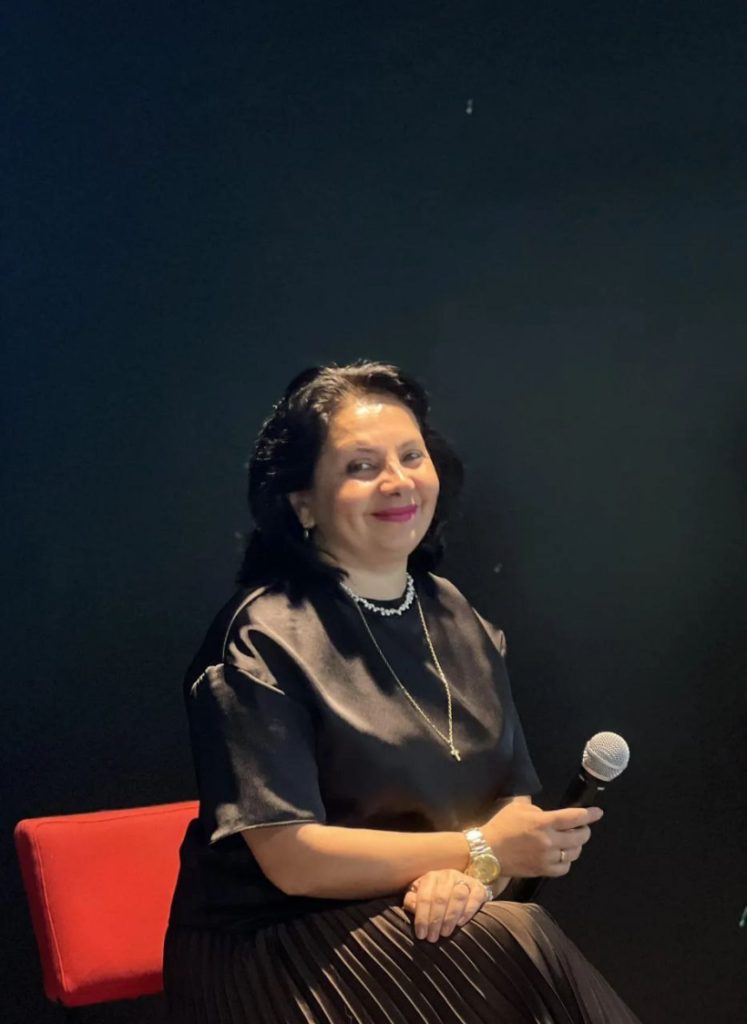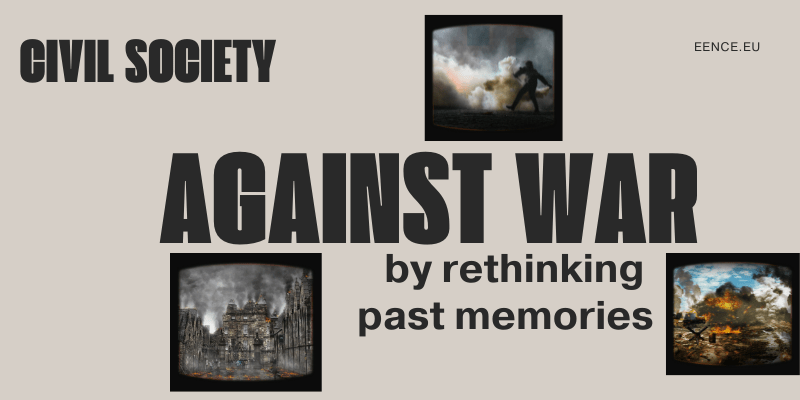Civil society against war by rethinking past
The series of interviews with the leaders of projects that are being implemented this year within the framework of EENCE continues with the conversation with Maka Bibileishvili from the Civic Education Teachers Forum (CETF, Georgia).
Her idea of rethinking memories in the context of countering the war was one of the winners of an idea competition organized this spring by our Network.
Maka, what is the relevance of project idea you are planning to implement?
A year has passed since the Russian invasion of Ukraine and the start of the war.
Compared to the first months of the war, the civil society’s emotions and the media’s attention to the war have significantly decreased, there we have fewer conversations about the war, and it seems that the terrible facts taking place in Ukraine have become part of our everyday life.
Society seems to have got used to living with war. This fact is particularly sensitive for Georgia, which has already experienced the 2008 Russia-Georgia war.
Based on past experience, the constant sensitivity of the Georgian society towards the ongoing war is necessary so that issues related to the war remain on the agenda.
Also, the war of today will be history tomorrow, and if society becomes so indifferent to the things of today, we might not even remember it. What did the Ukrainian people experience in this war? What and why should civil society keep in mind?
These are the kinds of questions that our project aims to answer. In addition, the civilized world should be united regarding this issue. Although the war is not yet over, the reflection of the past memory and the current war by the representatives of the educational sector of Eastern Europe and the post-Soviet countries is important for the adequate assessment of the actions of the aggressor country and the prevention of future wars
What will be organized in the frame of your project?
5 videos will be created based on real/live stories by a Ukrainian partner.
Also 3 online thematic meetings will be held in September-October and it will be open to all interested parties representing EENCE member countries.
Online meetings will be devoted to the importance of rethinking the past and its impact on society. The discussion of actual cases from the Ukrainian side in the context of the ongoing war will also be a focus of the online meetings.
The Ukrainian side will share details about how the war has affected people’s daily lives, the educational system, etc. Experts of these meetings are already selected and informed.
Three international partners (Armenia, Azerbaijan, and Ukraine) and a CETF expert have already held one online meeting to discuss the offline activity methodology.
3 offline and 1 online meeting (online meeting for Ukrainian audition) one-day discussion will be conducted in August. The meetings will be focused on sharing experiences, rethinking the past, the importance of memory for society, and adequately assessing the ongoing Russia-Ukraine war.
The target groups of the meetings will be formal and informal educational sector working actors.
Although this war is unfortunately still ongoing, in order for societies to prevent future wars and conflicts, it is important to understand/analyze, and discuss this war right now.
At the end of the offline meetings, the organizers of each country should collect the information and the highlighted findings at the discussion offline meeting and transfer them to the project expert who should ensure the development of the final policy document.
Development of a recommendation/policy paper in which the information obtained within the project will be presented. This document will be shared with the interested parts of all EENCE member countries.
In addition, a final/summary online meeting will be held on the presentation of the document and findings, organized by the project team and with the active involvement of the expert, attended by all EENCE member stakeholders. At the same time, there will be a summary of the project and an overview of the results.
Please tell us about project team
In addition to me, the main work in the project will be performed by my colleagues Gvantsa and Kristine.
Gvantsa Shishinashvili – has a strong background in teaching and mentorship in the formal and non-formal educational sectors. Also, important experience in project management. Since 2022, she is a part of the CETF team as a partnership development officer.
Kristine Gongadze – is a civic education teacher and believes that this discipline is the most significant in the school curriculum. She is also co-author of a civic education textbook for school students and a part of a great team of CETF since 2022.
What results are you expecting from this project?
The awareness and sensitivity of the educational actors of EENCE member countries’ organizations and all interested parties to the Russia-Ukraine war will increase, as well as the critical thinking of the public, and future wars and conflicts will be prevented.
Tell a little about yourself

I am an executive director of CETF.
My work mainly is connected to supporting teachers and the teaching process of civic education in general in formal and non-formal environments. At the same time, I am a Leading teacher of civic education, trainer, and consultant.
Winner of many educational competitions, both locally and internationally. Author of “Participation in School Self-Government” and “Prevention of Violent Extremism and Radicalism” manuals for civic education.
Author and trainer of training modules promoting the professional growth of civic education teachers, including teaching human rights and democratic citizenship.
I am actively cooperating with the Ministry of Education and Science in the following fields: development of a policy document for the development of the subject of civic education, review of subject standards and provision of recommendations, participation in consultation meetings on developing textbooks, provision of recommendations regarding the improvement of the quality of civic education teaching.
“Civil society against war by rethinking past memories” project will be implemented in the frame of EENCE activity under support of Federal Agency for Citizenship Education (bpb) and funded by German Ministry of Foreign Affairs.
Read also:


